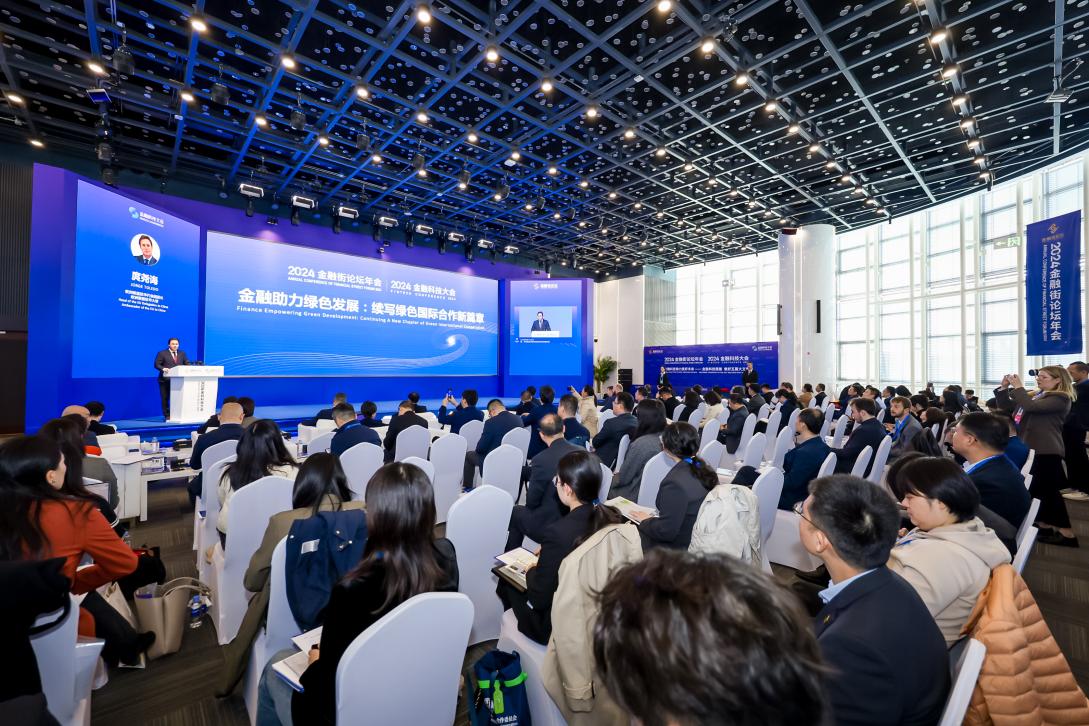Speech by EU Ambassador Jorge Toledo at “International Green Development Forum"

Dear Deputy Minister Zhao, distinguished guests, esteemed colleagues, and ladies and gentlemen,
I am delighted to join you today at the International Green Development Forum, a gathering that comes at a crucial time for the global community as we face the growing impacts of climate change and environmental degradation. On behalf of the European Union, I would like to extend my deepest appreciation to the organizers, including the Beijing Municipal Government, the People's Bank of China, and all other partner institutions that have made this event possible.
We are here today not just to discuss ideas, but to take concrete steps toward a sustainable future—a future in which our financial systems are a driving force for green growth, innovation, and resilience. As we meet in Beijing, we are reminded of the tremendous responsibility we all share in addressing the climate crisis. Global warming, biodiversity loss, and environmental degradation are no longer distant threats. They are challenges that demand immediate and coordinated action across sectors and borders.
At the European Union, we are fully committed to leading the fight against climate change. Our European Green Deal serves as our roadmap to achieve climate neutrality by 2050, with specific milestones such as reducing greenhouse gas emissions by at least 55% by 2030. This ambitious agenda has placed green finance at the heart of our policies and has led to the development of one of the most advanced sustainable finance frameworks in the world.
Our approach is comprehensive. We are building a financial system that supports the green transition through robust tools such as:
The EU Taxonomy for Sustainable Activities, which provides a clear and science-based framework for determining whether an economic activity is environmentally sustainable.
The EU Green Bond Standard, designed to ensure that green bonds truly contribute to climate and environmental objectives.
The Corporate Sustainability Reporting Directive (CSRD), which ensures that companies provide transparency on their environmental, social, and governance (ESG) impacts, enabling investors to make informed decisions.
These initiatives are not just about regulation—they are about unlocking the massive investments needed to drive the green transition. We estimate that to achieve our 2030 climate and energy targets, we will need additional investments of €700 billion annually. This is why we see green finance as not just a necessity but as an opportunity for innovation, growth, and job creation.
However, the EU recognizes that we cannot achieve these goals alone. The transition to a sustainable global economy requires cooperation on an unprecedented scale. This is why the Common Ground Taxonomy, developed in collaboration between the EU and China, is such a significant achievement. It represents a shared understanding of what constitutes sustainable economic activities and lays the foundation for greater alignment between our financial systems.
China’s leadership in green finance has been exemplary, from its pioneering work in the G20 Sustainable Finance Working Group to its active role in green bond markets. The EU is proud to collaborate with China in these areas. Together, we are at the forefront of global efforts to finance the green transition and to ensure that our financial systems support the climate goals set by the Paris Agreement.
The International Green Development Forum provides an excellent opportunity for us to deepen this collaboration, exchange best practices, and explore new avenues for cooperation. We are here not just to discuss policies but to create actionable frameworks that will guide the future of green finance.
While governments and international organizations have a critical role to play, we must not forget the vital contributions of the private sector. Financial institutions, businesses, and investors are key to driving the scale of investment required for the green transition. The financial sector, in particular, must lead by example by aligning its portfolios with the goals of the Paris Agreement and actively financing sustainable projects.
The EU has worked tirelessly to create the conditions for private sector engagement in green finance. Our EU Green Bond Standard is one example of how we are encouraging companies to invest in sustainable activities. We also believe in promoting innovation, particularly in fintech, which has the potential to revolutionize how we mobilize and direct capital toward green projects.
In conclusion, we stand at a pivotal moment in history. The choices we make today will determine the future we leave for the next generation. It is our shared responsibility to ensure that our financial systems serve the greater good and support the transition to a sustainable, low-carbon future.
I encourage all of you—government representatives, financial leaders, industry experts, and civil society—to use today’s forum as a platform for bold action and collaboration. Let us seize this opportunity to strengthen international green cooperation, align our efforts, and ensure that finance is a force for positive environmental change.
Thank you, and I wish you all a successful and productive forum.
